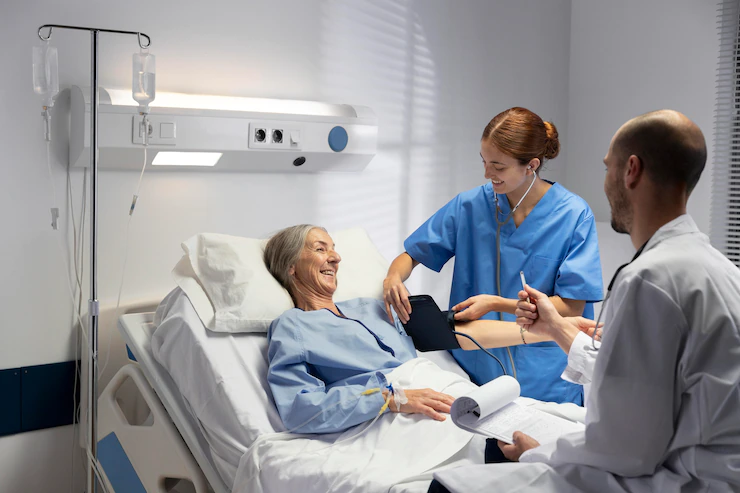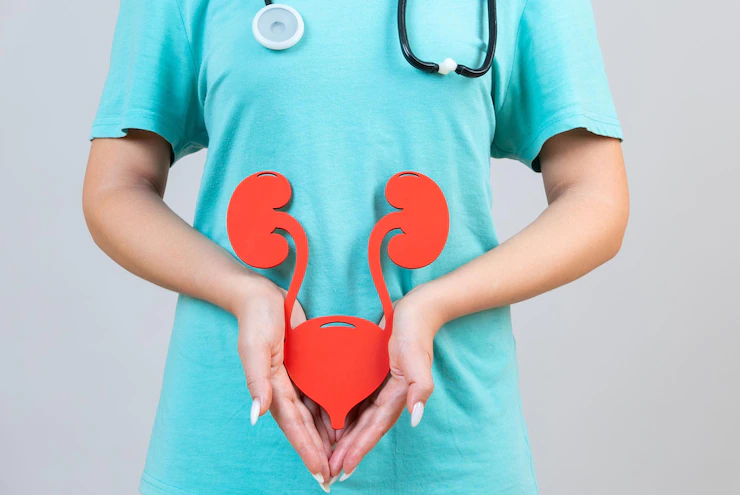
Nursing is a promising profession that offers great potential for growth and a stable career path in diverse settings.
With time, the traditional role of nurses has evolved and expanded to other fields, including education, forensics, the criminal justice system, psychology, trauma centers, prison care, and many more.
With so much to offer, picking a nursing specialization from so many options can be hard. Many factors count when it comes to choosing a specialization. It includes the scope of the specialization in professional settings, required education, and your interests and career goals.
For instance, if you want to work with children, you can become a school nurse. Similarly, your leadership skills can make you excel as a nurse manager or director of nursing.
You can consider the below-mentioned nursing specialties that promise a satisfactory salary.
The 12 High-paying Career In Nursing Specialties
| Overview: 1. Nurse Anesthetist (CRNA) 2. Family Nurse Practitioner (FNP) 3. Nurse Midwife 4. Psychiatric Nurse Practitioner 5. Nurse Practitioner 6. Neonatal Nurse 7. ER Nurse 8. Nurse Manager 9. Operating Room Nurse 10. Urology nurse 11. Toxicology Nurse 12. Telemetry Nurse |
1. Nurse Anesthetist (CRNA)
Nurse Anesthetists primarily focus on patients receiving anesthesia. They administer anesthesia to patients in addition to monitoring them for anesthesia side effects.
You can become a Certified Registered Nurse Anesthetist after working as a licensed RN in ICU or other similar settings. Additional requirements include a Doctoral degree in the CRNA program and National Certification Examination.

2. Family Nurse Practitioner (FNP)
Family nurse practitioners (FNPs) are nurses with advanced practice and specialized education. They are responsible for taking care and delivery of primary health care to patients of all ages.
The FNP career path is highly rewarding in terms of financial and professional growth. You can launch your career as an FNP after registering in FNP MSN online programs. It will help you get your national FNP license while continuing your job and starting independent practice later. Online mode of education is a quick way to accelerate your career growth.

3. Nurse Midwife
Nurse Midwives are APRNs who provide specialized care to pregnant women regarding childbirth and other reproductive health issues. They offer consultation for women with low-risk pregnancies from prenatal to postpartum.
In addition, they also educate women on sexual health, monitor fetal health, and guide new mothers in baby care. To start your career as a nurse midwife, you need to get an RN license and an MSN degree with a Midwifery specialization.

4. Psychiatric Nurse Practitioner
Psychiatric Nurse Practitioners are Advanced Practice Registered Nurses who provide care to patients similar to psychiatric nurses.
However, thanks to their advanced education and training, they can take extra challenges to deal with mental health disorders. Some states allow them to work with little or no medical supervision. You must become an RN before pursuing your career as a Psychiatric Nurse Practitioner.

5. Nurse Practitioner
A nurse practitioner is an APRN who is responsible for examining patients, diagnosis, and prescribing treatments and medications. In addition, nurse practitioners also order, interpret and perform diagnostic tests and treat critical health issues.
Some states allow NPs to practice without supervision. You must hold a BSN degree, MSN with NP concentration, or a doctorate in a nursing program to work as a Nurse practitioner.

6. Neonatal Nurse
A neonatal nurse focuses on newborns who are especially premature or dealing with health complications. The primary responsibilities of neonatal nurses are the implementation of care plans, checking vital signs, and performing diagnostic tests on infants.
Additional duties may include educating parents on how to take care of their babies and assisting them in the birthing process. To become a neonatal nurse, you have to earn a registered nursing license, certification to neonatal nurse, a master’s degree, and a neonatal nursing practitioner licensure.

7. ER Nurse
An emergency room nurse works in the emergency room of the medical facilities and deals with critical care patients on an urgent basis. They perform their duties under high-pressure settings and treat patients suffering from injuries and fatal conditions.
They are responsible for treating wounds and serious injuries, keeping an eye on life support systems, and classifying patients according to their medical needs. A licensed RN is qualified for this role with some practical experience in the emergency room.

8. Nurse Manager
A nurse manager acts as a liaison between the upper management and the healthcare staff. Nurse Managers ensure that patients receive the best possible care by supervising staff and monitoring them for compliance with all regulations and policies.
They typically handle finances, budgeting, scheduling of nursing staff, and providing direct patient care. To become a nurse manager, you must earn a registered nursing license, MSN, MHA, or MBA degree, with practical experience of at least five years in direct patient care.

9. Operating Room Nurse
An operating room nurse or surgical or perioperative nurse is responsible for handling patients before, during, and after surgical procedures.
Surgical nurses maintain safety standards for patients, monitor and record patients’ needs and conditions, and provide post-operative care following the surgery. They also coordinate the demand for surgical supplies, including equipment and instruments required for the surgery.

10. Urology nurse
Urology Nurses are responsible for handling patients who are suffering from health conditions related to the urinary system, like bladder infections, kidney stones, etc. They raise awareness in patients regarding proper hygiene, administer medications, and assist them with catheterization.

11. Toxicology Nurse
Toxicology nurses deal with patients who either consume or come in contact with poisonous or dangerous substances. Their patients are generally affected by the poison of venomous snakes, bee stings, etc.
They perform both clinical and non-clinical roles. For instance, as a toxicology nurse, you may extend help to patients via treatment or remotely through a helpline. You can become a toxicology nurse by working as a licensed RN with some practical experience.

12. Telemetry Nurse
Telemetry Nurses or Progressive Care Nurses are responsible for handling patients with cardiac conditions, like heart attack, cardiac arrest, etc.
They monitor and diagnose unhealthy heartbeats and perform EKG tests. This role works with critical patients, so it requires deliberate care and attention at a robust speed. You can join the professional field as a telemetry nurse after working as a licensed RN and gaining professional experience.

Final Thoughts
Nursing is a challenging profession that demands a lot of toils, dedication, and commitment.
You can excel in this field if you are passionate about serving humanity and achieving personal satisfaction.
Make sure your chosen specialization aligns with your career aspirations and helps you make the most of your profession.
Additional




























